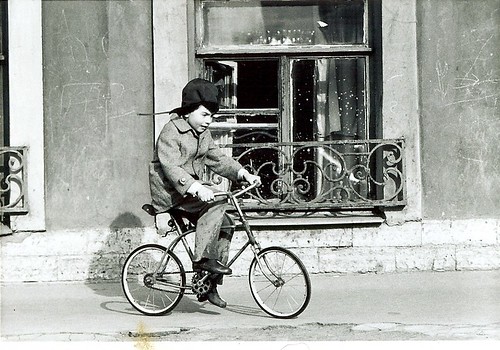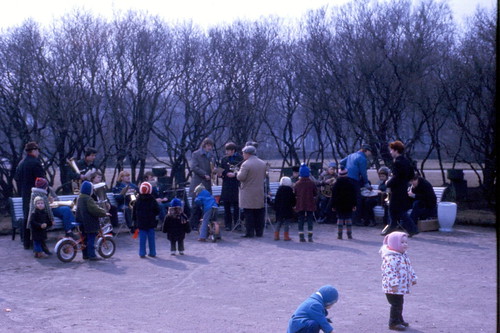I wasn't intending to do consecutive posts on Kickstarter bicycle-related projects, but I bumped into a
news item that brought another example of a bicycling related Kickstarter to my attention:
"Rideye is a black box for bicyclists-There are ways to get from point A to B other than driving a car. There’s the bus, walking, or bicycling . . . The most dangerous method of the aforementioned list though, is riding your bike."
Rideye solves this by providing evidence of motorist bad behavior for your future court case- you know, after you are injured. The story goes on (since it a "coolest gadgets" site) to talk about the many technical attributes of the device (that I'm not much interested in - and I'm not going to address the "most dangerous" statement, which is based on ???).
This oversubscribed Kickstarter makes a compelling argument for a product to insure your safety - well, actually not so much
The device's main claim to being a "black box" rather than simply a GoPro Hero clone is that it has a crash sensor that stops the recording (in the event of a crash ~) - this may seem superfluous except that since the device records in a 2.5 hour loop, if it didn't shut off when there is a crash, it could easily record over your evidence. (I personally find this the weakest aspect of the whole idea - if I'm going to video what happens on the chance of an accident, I for sure want video of what happens
after the accident, like audio of the driver when he/she jumps out of their car and shouts, "oh my God, I didn't see you!
It's all my fault." Oh well. You don't get that with this because it will have shut down.)
I get the idea that if a motorist does something illegal and you record it on video you have some better chance in court, but I don't get how that helps with safety in the usual sense. While aviation blackboxes are in part about assigning blame they are mostly about trying to prevent future crashes by understanding past ones. How a blackbox that helps assign blame helps making a particular cyclist who buys one more safe is not at all clear. The Kickstarter states, "Last year my friend was seriously injured in a hit-and-run doing the thing he loved most, and I promised him he would never have to ride with that fear again." If by having a camera to record your crashes you somehow feel better protected against the physical injuries you might suffer, there is some logic working there that I don't get. At all.
Not to say that video isn't useful for legal cases involving cyclists who are involved in accidents that are not their fault - it can be. There is a very long (and depressing)
blog post on GreaterGreaterWashington that described in detail how a cyclist used Metro DC police video to show he was not at fault (and despite police assumptions that he, the cyclist,
was at fault). So if you want to have video of you riding for that reason, for evidence, that's great - but it does nothing for safety. The Kickstarter's statement, "Let's make cycling safer for everyone" is simply baloney.
In the first few seconds sample Rideye camera records copious evidence that will cause no end of legal troubles if he later crashes
Where I live and ride (Virginia and also ride in D.C.) we have
contributory negligence - in fact, we have
pure contributory negligence, which means that if my negligence as a cyclist contributed to the accident even 1 percent, I may be unable to get $ from someone whose 99 percent of negligence caused me harm. So if I was going to use this device, it would be important to record my own legally pristine cycling behavior at all times, or else what's the point? In the above "sample video" at 22 seconds, the cyclist rides between a parked car and a car in a traffic lane - so if the car door opens or something else happens, what is the defense? "The space was wider than my handlebars, so going into it at 12 to 15 mph made excellent sense."
From Russia, without the slightest love, a bike crash video from a bike cam - it's ok, he survives apparently with no serious injury
As a completely different way to think about this, I would point out that for cars, Russia leads the way with dashboard cameras used in this sort of blackbox let's-record-possible-evidence-in-case-we-crash kind of way. (And to my surprise, I found the above example of a bike cam video from Russia, too.) Doesn't this validate the Rideye Kickstarter? Well, sure, if you want to agree that for cyclists America = Russia. And based on the GreaterGreaterWashington blog post, maybe that
is true. But keep in mind what the situation is in today's Russia - if you don't have video evidence, the first problem you have is with police bribery (not the courts) - in other words, you want to have video evidence so that you don't get in a bidding war with other drivers over how the accident is described by the Russian traffic cops. "But officer, my video shows . . . " And of course none of this Russian dash board cam stuff has improved the safety as far as how Russian drivers operate their vehicles even one iota - search "russia dash cam crash compilation" in Google if you don't believe me. (Also, you can look at the relevant portion of the
entry in Wikipedia about Russian transportation - hey, didn't I get a master's degree about transportation in that country? No, since it was 30 years ago it was about
Soviet transportation, so a different country. But . . . same Russians.)
Is it really that bad here? And is this really useful for cyclists?
Personally my impression from comments on the videos is that mostly people look at this and compare it pricewise to GoPro Hero products - they want video of their cycling, not possible evidence.


